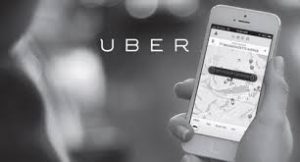
It is quite difficult to have a clear and coherent picture of how the future of work will look like with all the driverless cars, automated jobs and new human-only careers. At the same time, it is equally difficult to imagine the future with traditional 9-to-5 jobs, isn’t it? Although there is quite some uncertainty in terms of the magnitude and results of the changes, the notion of the changes itself is clear. Freelancing and gig economy are already on the rise and increasingly satisfy the needs of both, businesses and employees. For businesses, such an on-demand job market means access to needed talent and skills at the right time, the right place, and the right amount. For workers, it means self-employment, freedom and flexibility.
As every change though, the trend towards the gig economy is not without its flaws. As discussed in a relevant World Economic Forum article, for many the reality of freelancing and gig economy are drastically different from the glamorised portrayal of such a lifestyle. The benefits of increasingly flexible employment are probably most available to the ‘creative class’ of freelancers, such as architects, web-designers or bloggers, who can indeed work while travelling, and charge for their services as they wish. Yet, a big part of the gig economy is currently flourishing in the service sector, where individuals work long hours to get enough gigs to make their ends meet. Yes, you may still work when you want and as much as you want, but this seemingly attractive arrangement has its toll.
Indeed, the gig economy is all about losing the traditional notions of employers and employees, providing instead platforms that connect customers to workers. As such, workers, especially in the service industry, are left without work places, colleagues or managers. Instead, there is contact only via apps and through algorithms. Algorithms notify you about available gigs, calculate your salary, evaluate your ratings and, as in the case of Uber, can ‘deactivate’ your below-par service. Algorithms don’t care and don’t ask ‘how are you doing’. Sounds lonely and impersonal, doesn’t it? According to a recent Financial Times article, occupational health experts are quite worried about such risks of gig economy work, arguing that the combination of insecurity of income, low pay and isolation is the perfect recipe for stress and mental ill-being.
Apart from the stress uncertainty and isolation, some experts highlight the risks related to identity as well. Namely, the flexibility of the gig economy creates opportunities to combine several jobs (gigs), which results in multiple work identities. According to recent research, people with multiple jobs may struggle to identify their work selves and feel authentic to all their work roles. Such struggle is reflected in the words of a young gig-economy millennial worker, who says that “one day I’ll be on stage singing, and the next I’m delivering food on my bicycle and it does feel … deflating.”
As such, although the future of work is not entirely here yet, the first steps show us some clear challenges. And the challenges are not just about upskilling people for new careers, or keeping updated with technological advancement, it is also about psychological and social well-being of people within an increasingly flexible and detached job market.

